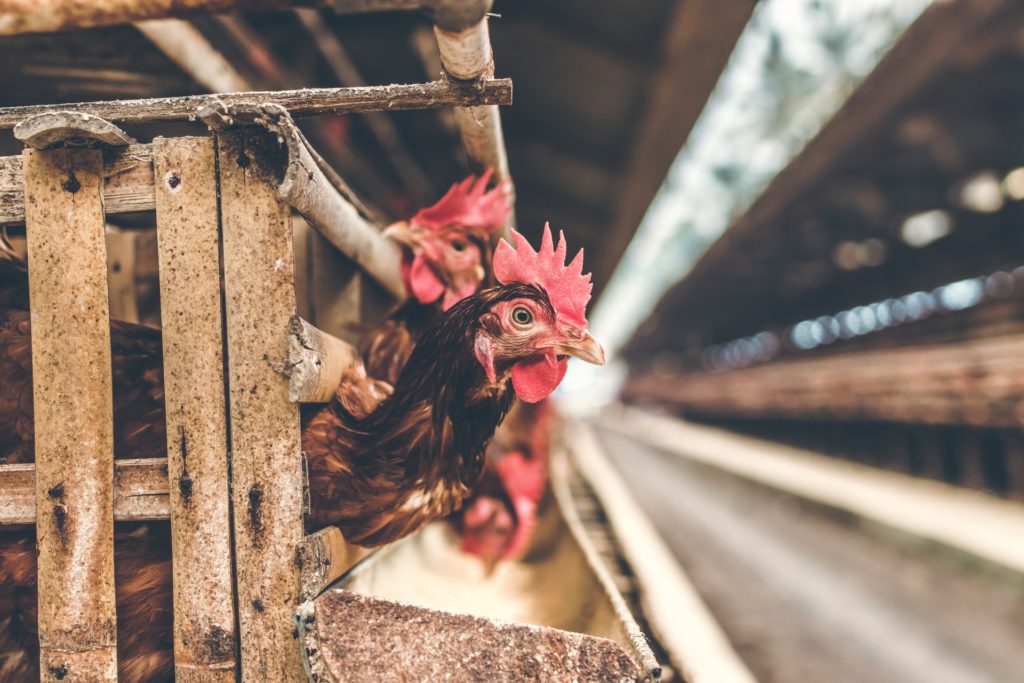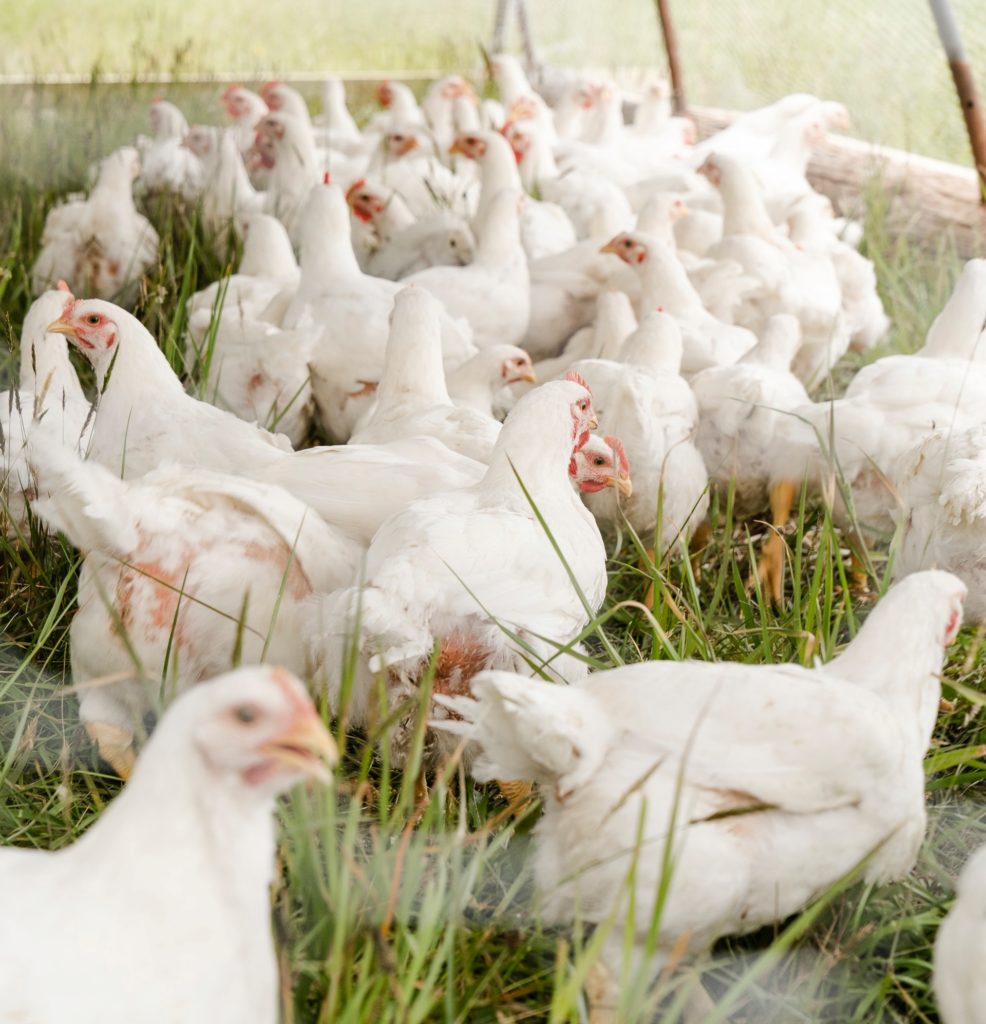What’s the difference between the German Hähnchen and Hühnchen? Posted by Sten on Feb 24, 2022 in Culture, Food, Language, Vocabulary
We have a confusing situation on German menus: Sometimes, you encounter die Hühnerbrust (chicken breast), other times it’s der Hähnchenbraten (chicken roast). But what is the difference between Hühnchen and Hähnchen? Are they used interchangeably, or should you be careful which one to use? Here’s all you need to know about these curious German words.
Click here for more posts in our series on Curious German Words.
The definitions
But first things first. What do Hühnchen and Hähnchen mean?
With their -chen ending, you already know they’re the diminutive of das Huhn and der Hahn. And from the articles, you know Huhn is neutral, while Hahn is male. We’ll use our trusty Duden for the definitions of these words.
der Hahn – männliches Haushuhn, männliches Tier von Hühnervögeln (rooster – male domestic chicken, male animal of galliforms)
das Huhn – Haushuhn, die Henne (chicken – domestic chicken, hen)
So from these definitions, it seems that the only difference is that the Hahn is male, and the Huhn can also refer to die Henne, the female chicken. So is that the difference between Hähnchen and Hühnchen? Does that mean that die Hähnchenbrust is always from a male chicken and die Hühnchenbrust is always from a female chicken?
Not quite.
Different but the same
In general, der Hahn is not really useful for the meat industry. Male chickens don’t lay eggs and they would only interfere with the female chicks. So they are killed after just a few weeks if they’re lucky and get that long. Female chickens are bred for the egg industry, but also for the meat industry, with a similarly short lifespan. The difference is that egg-laying chickens will have a life that’s a bit longer because they first have to lay eggs before meeting their premature death. At that point, however, their meat isn’t very tender anymore, which is why these chickens aren’t used for Hähnchenbrust, but rather as, for example, das Suppenhuhn (soup chicken).
So historically, the difference did indicate the gender. The Hahn was raised for a short time and killed when the flesh was still tender, while the Huhn was killed after it did not lay enough eggs anymore. The Huhn therefore has more tough flesh.
These days, you might not find that many Hähnchen anymore. When it says Hähnchen, it probably contains Hühnchen, and vice versa. It’s definitely most likely to encounter a Hühnchen in chicken dishes with the current industry. So now, gender doesn’t matter anymore.
Lastly, it’s a bit odd that das Diminutiv (diminutive) of Huhn and Hahn is used. It isn’t what we use to refer to baby chicks – those are das Küken (chick). Perhaps it originally referred to just a part of the chicken that was eaten. After all, it usually isn’t the entire chicken that’s eaten all at once, but only the breast, the wings, etcetera. So perhaps Hühnchen in that context meant a “little bit of chicken”.
Are there other confusing, curious words in German that you’re wondering about? Let me know in the comments below!

Build vocabulary, practice pronunciation, and more with Transparent Language Online. Available anytime, anywhere, on any device.






Comments:
Barbara:
In your title Hähnchen und Hühnchen are both missing the “H” later they appeared with the h did the chicks eat that “h?
Sten:
@Barbara Whoops! Fixed that, thanks for pointing that out 🙂
alcazar:
@Sten You also missed two “h” in the paragraph below.
In East Germany it might be less confusing, the chicken you eat (“Brathähnchen” or “Grillhähnchen”)
is just called “Broiler” 😛
Sten:
@alcazar too many consonants in those words xD
Now really, truly fixed it.
And yes! The fact Broiler means just that is a great example as well of how the lines are blurred.